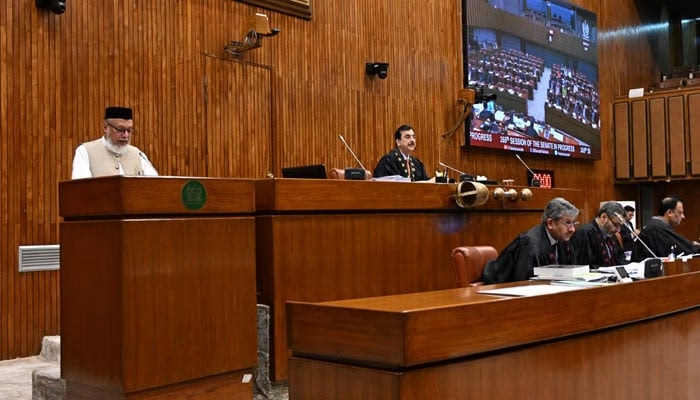The 27th Constitutional Amendment has become one of the most discussed political developments in Pakistan, as it proposes sweeping changes to both the judicial system and the military command structure. Introduced in the Senate after approval from the federal cabinet, the amendment aims to realign constitutional powers, redefine high-level military positions, and introduce a new Federal Constitutional Court. These reforms mark a significant moment in Pakistan’s legal and institutional evolution.
A New Military Leadership Structure
One of the most prominent features of the 27th Constitutional Amendment is the restructuring of the country’s military command. The amendment proposes abolishing the long-standing position of Chairman Joint Chiefs of Staff Committee (CJCSC) and replacing it with a new title, Chief of Defence Forces.This newly introduced role would serve as the overall head of the armed forces, creating a clearer chain of command and aligning the structure with modern defence management practices.
Under the proposed changes, the Chief of Army Staff will automatically assume the role of Chief of Defence Forces beginning November 27, 2025. This move is expected to bring uniformity to the defence leadership model and streamline decision-making on strategic and operational matters.
The amendment also confirms that honorary military titles such as Field Marshal, Marshal of the Air Force, and Admiral of the Fleet will carry lifetime status. While these titles have historically been rare, the amendment further clarifies that only the Parliament will hold the authority to revoke them, ensuring transparency and democratic oversight.
Another significant shift involves the appointment of the commander for the National Strategic Command. Under the new arrangement, the prime minister will appoint this commander from the Pakistan Army, but only on the recommendation of the Chief of Defence Forces. This ensures a balanced process that incorporates both civilian and military input.
Creation of the Federal Constitutional Court
Perhaps the most transformative judicial reform in the 27th Constitutional Amendment is the establishment of the Federal Constitutional Court. This court is designed to handle constitutional matters that are currently under the jurisdiction of the Supreme Court. By transferring certain authorities to the new court, the amendment aims to distribute the judicial workload more efficiently and promote specialized constitutional interpretation.
A significant aspect of this reform is the equal provincial representation in the Federal Constitutional Court. Unlike the current judicial structure, which can sometimes appear uneven in distribution, this new court will ensure that all provinces—Punjab, Sindh, Khyber Pakhtunkhwa, and Balochistan—have equal input in high-level constitutional decisions.
The appointment process for judges will also change. Under the proposed framework, both the president and the prime minister will play central roles in nominating and confirming judges. At the same time, Parliament will hold the authority to determine the number of judges serving in the court—a mechanism designed to empower elected representatives and incorporate broader democratic participation.
The chief justice of the Federal Constitutional Court will serve a fixed three-year term. This limited tenure is intended to prevent extended concentration of authority and maintain a healthy rotation of leadership.
Reduction in Supreme Court Powers
One of the more controversial elements of the 27th Constitutional Amendment is the reduction of certain powers currently held by the Supreme Court. Constitutional responsibilities such as specific interpretations, disputes between state institutions, and other high-level matters will now shift to the Federal Constitutional Court.
Supporters argue that this change will help reduce the Supreme Court’s heavy caseload and create a more efficient judicial system. Critics, however, believe it may weaken the Supreme Court’s role as the final constitutional authority. Nonetheless, the shift represents a major restructuring of Pakistan’s judicial architecture.
Enhanced Presidential Immunity
The amendment also proposes granting lifetime immunity to the president from criminal proceedings. This clause aims to ensure stability and prevent political harassment of individuals who have previously held the highest ceremonial office in the country. Similar immunities exist in various forms around the world, though the lifetime aspect has sparked debate.
The 27th Constitutional Amendment represents one of the most extensive constitutional reform proposals in recent years. With changes ranging from military leadership to judicial restructuring, the amendment aims to modernize Pakistan’s governance framework and redistribute institutional powers. As parliamentary committees review the proposal and national debate intensifies, the amendment’s long-term impact will depend on how these reforms are implemented and received across the political spectrum.



